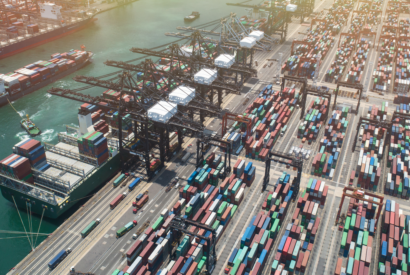The recent Thai Union scandal has once again brought the ethical food supply issue into public focus.
Despite the negative initiation, we believe that the debate has brought to light the positive shift occurring in the global food retail industry. The facts indicate that there has been a steadily increasing focus on ethics and sustainability in the food supply chain.
The recent success of the Paris conference demonstrates the significance of sustainability to the world’s leaders. Governments, retailers, producers, and consumers are all set on increasing supply chain visibility to reduce the occurrences of practises such as those found at the Gig Peeling Factory.
More and more, groups are speaking out and acting with long-term change in mind. For example, Dirk Leuenberger, CEO of Aqua Star, a leading seafood suppler that sources from Thai Union, said: “I want to eliminate this. I think it’s disgusting that it’s even remotely part of my business.” The lines between ethical trade and sustainability are blurring. Sustainable trade is ethical, ethical trade is sustainable. Still, here are some great new actions in each area:
A) Human Rights
The British government recently launched the ambitious Modern Slavery Act 2015 which even contains measures aimed at improving supply chain ethics abroad. The ‘Transparency in Supply Chain Provisions’ require larger businesses to publish an annual statement that either confirms the steps they’ve taken to ensure slavery and human trafficking are not taking place in their supply chain or announces that no steps have been taken. There are no legal requirements to conduct ethical reviews, but it is assumed most businesses would take the former option to maintain their reputation.
NGOs are also working to facilitate the global supply shift. For example, Seafish certified its first 3 fishing vessels in August of this year. Human Rights abuses are not just limited to one area of the fishing supply chain, like the Gig Peeling Factory, many fishing vessels also exhibit behaviours that customers and suppliers alike can seek to curb. The Responsible Fishing Scheme provides a framework for fishing vessels to go through an auditing process that proves their commitment to both responsible catching and crew welfare.
B) Sustainability
Waste Reduction
It is important to note that sustainability initiatives are not merely focused around emotion. Discussions are ongoing concerning possible uses for waste food. For example, PepsiCo recycles waste into fertiliser pellets in Turkey – these pellets can then be sold on at a cheaper price (approximately 15%) than standard products, benefitting both parties. PepsiCo also says that the product ‘applies less nitrogen to the soil, especially synthetic nitrogen, adds organic material and generates less greenhouse gas than traditional chemical fertilizers during the manufacturing process.‘
Government Funding
In the UK, there have been several sustainability initiatives led by the government. Amongst these is the Dairy Roadmap – an enterprise led by the NFU, the AHDB, and Dairy UK aimed at supporting and steering the UK Dairy industry towards increasingly sustainable business models. Targets set out in the 2015 Dairy Roadmap included:
- 90% of dairy farmers are actively involved in planning nutrient management
- 70% uptake of water use efficiency measures
- 65% of dairy managed farmland has been entered into environmental stewardship schemes
Government watchdogs help too
The Australian government has also taken a proactive approach to encouraging greater supply chain visibility. Consumer watchdogs and regulatory bodies are increasing their expectations – but Australian retailers like Woolworths and Coles are responding to these changes with an open mind.
Woolworths in particular is implementing supply chain solutions that ensure ethical and quality audits are carried out and recorded in food, hardlines and apparel supply chains. With support from CMG, they have implemented Product Lifecycle Management Systems to gain greater visibility into the end to end New Product Development process. Woolworths chose to implement the Micros solution by Oracle from a desire to change culturally and to avoid further regulatory repercussions.
C) Collaboration is key
Collaboration is key in ensuring that everyone in a supply chain works together to improve sustainability and adheres to the same ethical standards. Tools such as The Cool Farm Tool have been developed to help growers, manufacturers and distributors work together on increasing sustainability.
Supplier surveys can help too. Behavioural surveys about relationships reinforce the importance of collaboration and pinpoint areas where relations need to be improved. CMG has a long history of developing and running independent supplier surveys. They are inexpensive, easy to implement, and provide a great deal of supply chain visibility.
D) The journey is underway
There is obviously still progress to be made, but we believe the results of moves such as these will have significant long term benefits given the attitude displayed. The precise nature of the shift remains to be seen – however what is clear is that the changes to the industry will continue.
Learn More:
The Consultant’s Cultural Toolkit #4 – Attitudes
Building the Digital Experience
Seafish Responsible Fishing Scheme
Associated Press – Global supermarkets selling shrimp peeled by slaves
PepsiCo – Less Waste, Better Farming in Turkey







